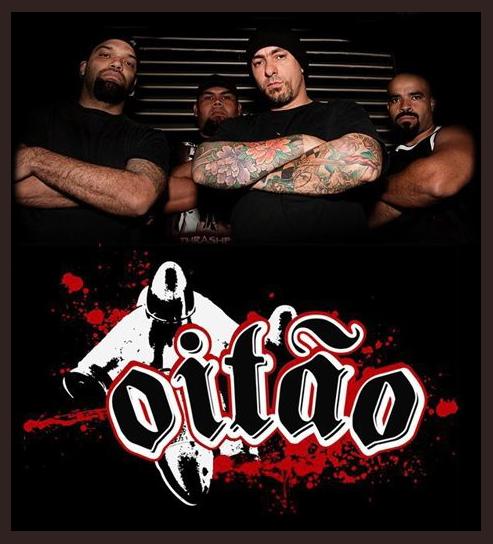 Oitão
Oitão
Oitão: The Voice of the Oppressed
In the tempestuous musical landscape of Brazil, Oitão emerged as a beacon of resistance, their haunting melodies echoing the struggles and aspirations of the disenfranchised. Fronted by the enigmatic vocalist Gilson Guerra, Oitão's music became an anthem for the poor and marginalized.
Genesis and Struggles:
Oitão's humble beginnings in the favelas of Salvador, Bahia, shaped their unwavering commitment to social justice. Amidst poverty, violence, and neglect, the band found solace and empowerment in music. Their lyrics, raw and unyielding, chronicled the plight of the oppressed, denouncing inequality and demanding change.
But their journey was not without challenges. Their outspoken nature drew the ire of authorities, who accused them of inciting social unrest. Performances were often canceled, and members were subjected to harassment and intimidation. Yet, Oitão refused to be silenced.
Signature Song: "Pobre Povo"
The band's signature song, "Pobre Povo," became an instant classic, its poignant lyrics resonating with millions of Brazilians. The song's haunting melody and Guerra's impassioned vocals exposed the systemic poverty and exploitation that plagued the nation.
"Pobre Povo" became synonymous with Oitão's message of hope and defiance. It rallied the marginalized, giving them a voice in the face of adversity. The song's popularity transcended geographical boundaries, resonating with audiences worldwide.
Discography and Members:
Over the years, Oitão released several acclaimed albums, including "Oitão" (1983), "Semente da Liberdade" (1985), and "O Poder do Povo" (1989). The band's lineup featured:
* Gilson Guerra: Vocals
* Roberto Leal: Guitar
* Paulo Novaes: Bass
* Marcelo Costa: Drums
Controversies and Legacy:
Oitão's music sparked intense debate and controversy. Their lyrics were often deemed too inflammatory, and their affiliation with leftist political movements drew criticism from both the right and left. However, their unwavering commitment to social justice and their undeniable musical talent earned them a loyal following.
Today, Oitão's legacy continues to inspire countless artists and activists. Their music remains a powerful reminder of the struggle for equality and the indomitable spirit of the oppressed. Oitão's voice, once silenced, now resonates louder than ever, echoing the aspirations of the poor and marginalized everywhere.
In the tempestuous musical landscape of Brazil, Oitão emerged as a beacon of resistance, their haunting melodies echoing the struggles and aspirations of the disenfranchised. Fronted by the enigmatic vocalist Gilson Guerra, Oitão's music became an anthem for the poor and marginalized.
Genesis and Struggles:
Oitão's humble beginnings in the favelas of Salvador, Bahia, shaped their unwavering commitment to social justice. Amidst poverty, violence, and neglect, the band found solace and empowerment in music. Their lyrics, raw and unyielding, chronicled the plight of the oppressed, denouncing inequality and demanding change.
But their journey was not without challenges. Their outspoken nature drew the ire of authorities, who accused them of inciting social unrest. Performances were often canceled, and members were subjected to harassment and intimidation. Yet, Oitão refused to be silenced.
Signature Song: "Pobre Povo"
The band's signature song, "Pobre Povo," became an instant classic, its poignant lyrics resonating with millions of Brazilians. The song's haunting melody and Guerra's impassioned vocals exposed the systemic poverty and exploitation that plagued the nation.
"Pobre Povo" became synonymous with Oitão's message of hope and defiance. It rallied the marginalized, giving them a voice in the face of adversity. The song's popularity transcended geographical boundaries, resonating with audiences worldwide.
Discography and Members:
Over the years, Oitão released several acclaimed albums, including "Oitão" (1983), "Semente da Liberdade" (1985), and "O Poder do Povo" (1989). The band's lineup featured:
* Gilson Guerra: Vocals
* Roberto Leal: Guitar
* Paulo Novaes: Bass
* Marcelo Costa: Drums
Controversies and Legacy:
Oitão's music sparked intense debate and controversy. Their lyrics were often deemed too inflammatory, and their affiliation with leftist political movements drew criticism from both the right and left. However, their unwavering commitment to social justice and their undeniable musical talent earned them a loyal following.
Today, Oitão's legacy continues to inspire countless artists and activists. Their music remains a powerful reminder of the struggle for equality and the indomitable spirit of the oppressed. Oitão's voice, once silenced, now resonates louder than ever, echoing the aspirations of the poor and marginalized everywhere.